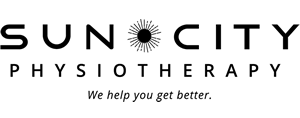Women’s Health
Pelvic Health problems don’t get a lot of press. If you have a bladder issue, for example a bit of leakage when you cough or sneeze; if you know where every bathroom is when you go out shopping, you have a problem. Chances are, you’ve never even spoken to your doctor about it.
Urinary incontinence, the involuntary loss of urine, is quite prevalent. It is estimated that 10-44% of women experience it to some degree. 50-70% of Urinary Incontinence is unreported. Stress incontinence can also affect men after a prostatectomy. Incontinence is NOT a normal part of the ageing process.
There are two main types of bladder incontinence:
Stress incontinence is like a leaky faucet. The bladder leaks with effort or exertion (like a cough or a sneeze). This may be due to weakened pelvic floor muscles, an ineffective sphincter muscle along the urethra, relaxed ligament/ fascial support of the pelvic organs, and/or hormonal changes. It is a common symptom during and after menopause.
Urge Incontinence is experienced with a strong urge to void, which is very hard to suppress. The bladder is like an overactive pump. Strong contractions of the smooth muscle in the bladder walls cause urine to leak out. Triggers can be the sound of water running, or putting the key in the door when we’ve been out for a long walk. Strong urge and increased frequency of urination can occur without leakage. This is sometimes known as Overactive Bladder syndrome.
What can be done about Stress incontinence?
There are several types of treatment available. Conservative treatment involves pelvic floor muscle retraining, lifestyle changes, optimizing fluid intake. Biofeedback can be a useful tool in the training process. Sensors near the pelvic floor muscles measure the strength of a voluntary contraction and provide feedback. It can be a valuable learning tool.
Using the upper abdominal muscles excessively can add to the problem. There is a definite link between using the deepest layer of abdominals for proper support of the pelvic organs, and getting a stronger contraction of the pelvic floor muscles.
Specially trained physiotherapists can assess these bladder disorders, teach people with incontinence how to correctly perform specific exercises, advise how to retrain the bladder to improve continence control.
Medical interventions may be needed for more severe problems. During menopause, low
estrogen levels can contribute to the problem. Surgery is also an option for some women. Pelvic floor training is highly beneficial whether surgery is needed or not.
Many people don’t realize there is help out there for their issues, and spend large amounts of money on pads and incontinence products, or abstain from social events for fear of embarrassment. With a few months of regular adherence to an exercise routine and lifestyle changes, moderate degrees of incontinence can be cured. The first step is booking an appointment with a trained professional.
